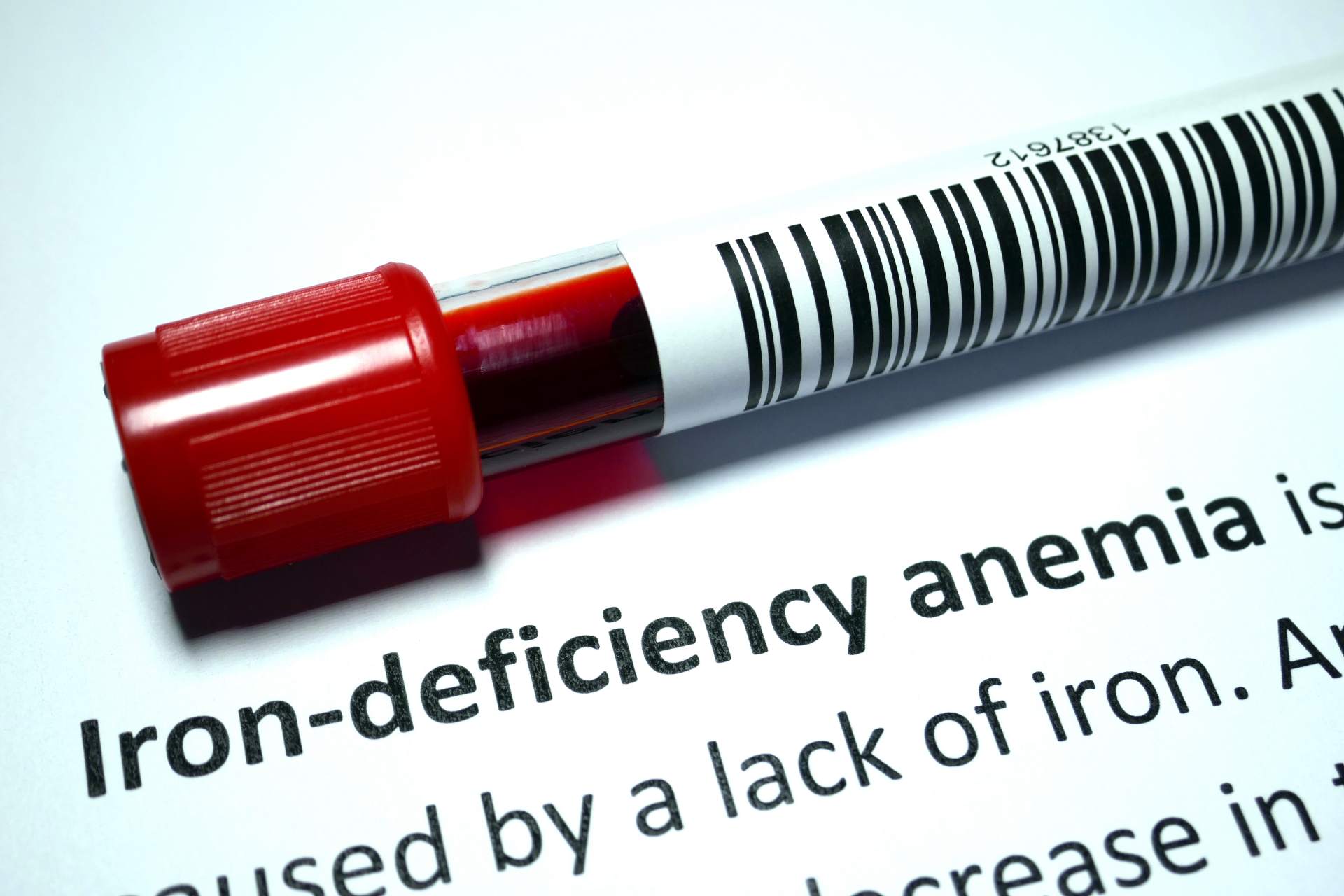Iron, a vital mineral, plays a pivotal role in maintaining our overall health and vitality. It’s an essential component of hemoglobin, the protein responsible for carrying oxygen from the lungs to all parts of the body including the brain and muscles. Iron also plays a role in converting sugar to energy, boosting the immune system, aiding in cognitive function, and supporting healthy skin, hair, and nails.
Iron deficiency is a prevalent condition that can lead to a whole host of symptoms. Some of these symptoms are well known – heart palpitations, fatigue, weakened immunity, shortness of breath and weakness. Other symptoms can include anxiety and low mood, restless leg syndrome, and cognitive changes. There are so many factors that contribute to our health, but it is important to make sure that nutrient deficiencies are not contributing to your overall symptom picture. Iron deficiency is a big one to watch out for especially in menstruating individuals. Blood testing for a CBC and ferritin are easy and affordable and should always be part of your routine examination.
Causes
Iron deficiency can arise from several factors including inadequate dietary intake, poor absorption, increased demand during growth or pregnancy, blood loss such as menstruation, or genetic causes.
Sometimes we struggle to get enough iron in the diet – maybe it is due to dietary restrictions or just a busy schedule; this combined with inadequate absorption can make it challenging to maintain the levels of iron that the body needs. GI absorption can be affected by a number a factors – SIBO, leaky gut, gut inflammation, IBD, IBS, stress (the list goes on)! Working on gut health is always a priority for laying a strong foundation for health, but this can take time and sometimes we need to shift our treatment approaches to best support the immediate needs.
Blood loss from menstruation is a major contributor to iron deficiency in women. It can feel like an uphill battle to build up iron stores with oral supplements and unfortunately the body will tend to have heavier periods of bleeding when we are low in iron! Additionally, some individuals may inherit traits that make them more prone to iron deficiency making it even more challenging to maintain the iron that your body needs.
Treatments
Oral iron supplementation is a necessary part of ongoing treatment for many. Oral Iron comes in a wide variety of forms and the main side effect reported with use is digestive upset, namely constipation. Vitamin C can help to offset this effect as it is a natural laxative and Vitamin C additionally helps iron to absorb.
The bisglycenate form is known for being the gentlest and least likely to have this effect, though some find that a plant-based iron is the only thing they can tolerate orally. Most find that if they split their dose up and take it throughout the day, the side effects are much more tolerable. It is best to talk with your physician to decide with option and dosing is best for you and your body.
B12 and Folate are crucial co-factors for red blood cell production so having adequate B vitamin supplementation is important in support iron deficiency and anemia as well.
Dietary Considerations
Foods high in iron include red meats (beef, lamb, pork), poultry, fish and shellfish, eggs, nuts, dried fruit, whole-meal pasta and bread, iron-fortified cereal, legumes (black beans, lentils, chickpeas), dark leafy green vegetables (spinach, broccoli), oats, tofu.
Vitamin C aids absorption (such as the supplement, or foods rich in Vitamin C, such as: apples, pomegranates, oranges, orange juice, cantaloupe, strawberries, grapefruit, kiwi and other Vitamin-C rich foods).
Cook in a cast-iron skillet, pots or pans to add extra iron to your food.
AVOID at the time of iron supplementation as these things that reduce the absorption: Dairy, calcium supplements, black tea, nuts, soda, chocolate, coffee.
Iron Infusions vs Oral Supplementation
Iron infusions bypass your digestive tract and can be helpful in those who have absorption issues or who get an upset stomach with oral supplements. Most find rapid benefit in mood, energy, brain fog and general sense of well-being when they receive a needed iron infusion.
IV iron treatment can be a game-changer for individuals struggling with iron deficiency, offering faster relief of symptoms than oral supplementation alone. Intravenous iron infusions deliver iron directly into the bloodstream, bypassing the digestive system and improving absorption rates. IV iron is great for people who struggle with constipation while taking oral iron. This method allows for faster and more effective replenishment of iron stores, leading to a rapid improvement in anemic symptoms. Treatment recommendations and frequency are made based off recent blood work including CBC, iron panel, and ferritin.
Additionally, we routinely prescribe Vitamin B injections for our patients to support the much-needed cofactors for iron absorption and red blood cell production. You can add on a B vitamin injection to your IV iron infusion, you will notice the positive effects!
Insurance companies are variable in whether they will cover an iron infusion. Typically, they will only cover these through a specialist, called a Hematologist, often within Oncology Departments. There are specific cut offs for ferritin and CBC parameters for insurance to cover these treatments, but people are often significantly symptomatic well before labs will reflect cuts offs for insurance coverage. Our clinic offers Venofer Iron Infusions prescribed by physicians, but we do not bill insurance for these services and all fees must be paid at the time of service. The benefit of doing treatments at the clinic include faster and more comfortable appointments, consultation time with your provider during the treatment, and accessibility outside of insurance coverage/ a hospital system.



